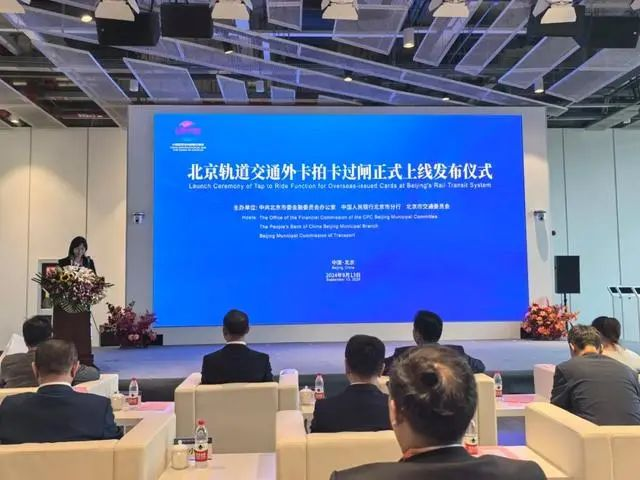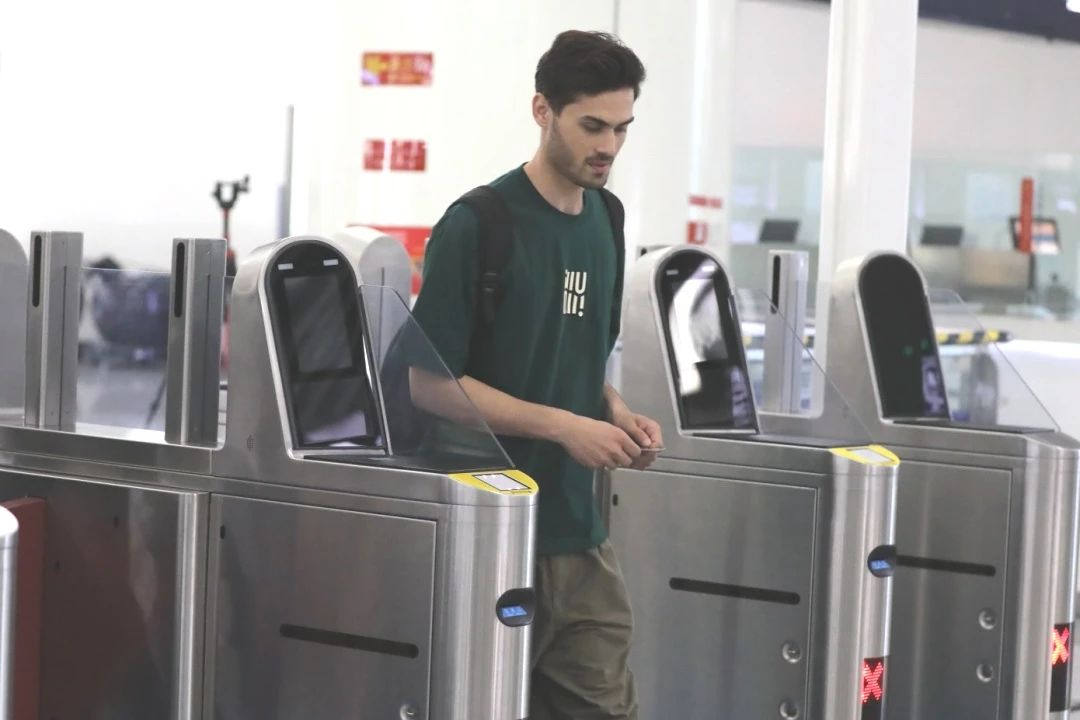Foreign passengers can now enjoy seamless tap-to-ride services using their overseas bank cards at the fare gate, without the need to buy a ticket beforehand. The contactless tap-to-ride services for overseas bank card holders have become available at 490 stations along 27 subway lines in Beijing since September 13, enabling foreign passengers to directly access the subway using their Mastercards or Visa cards.

Launch Ceremony
At 0:00 on September 13, the contactless tap-to-ride function for Mastercards and Visa cards issued overseas was officially launched. This service is now available at all fare gates, at all times, and across the entire network in 490 stations along Beijing’s 27 subway lines (including two airport lines, Xijiao Line and Yizhuang T1 Line), covering a total length of 836 km. Additionally, the Suburban Railway Line S2 also supports this service. Going forward, the JCB cards will be rolled out to meet the diverse payment needs of both Beijing residents and visitors. This pioneering initiative on the Chinese mainland, which enables foreign visitors to China to enjoy tap-to-ride services at all fare gates, at all times, and across the entire network with overseas cards, has enriched payment options in Beijing’s rail transit system.
On the morning of September 13, a foreign passenger entered the Caoqiao Station and tapped his overseas bank card at the identification zone of a fare gate, and the gate opened promptly. According to the station staff, foreign passengers traveling with others can also buy tickets for their companions with their overseas bank cards at the self-service machines. Furthermore, Beijing plans to launch an international version of the “Yitongxing” App, which supports registration with overseas mobile phone numbers and foreign identity verification. With this app, foreign passengers will be able to take the subway by scanning QR codes.

A Foreign Passenger Takes the Subway with His Overseas Bank Card
Beijing has taken the lead among provincial-level jurisdictions in formulating an implementation plan that focuses on eight key scenarios, including catering, accommodation, travel, tourism, shopping, entertainment, medical care, and education. Comprehensive measures have been implemented in areas such as foreign bank card acceptance, mobile payment, cash service and foreign currency exchange, significantly improving payment services in key areas and scenarios.
(Edited based on relevant reports from Beijing Daily and Guangming Online)


